Interdisciplinary Training Program for Biostatisticians.
This NIH-funded program provides training in interdisciplinary research, reproducibility methods, and the responsible conduct of research while supporting students in their professional and career development.
About Us
The Interdisciplinary Training program for Biostatisticians is built upon the requirements of the PhD doctoral program in Biostatistics at Boston University. In addition to the standard requirements of the Biostatistics PhD program, the program requires trainees to take a course in biological sciences, complete three research rotations to gain experience in different areas of application of biostatistics, complete training in reproducible research, and complete comprehensive responsible conduct of research training, including an internship at the Institutional Review Board at Boston University Medical Campus. Trainees also benefit from monthly group meetings with the Co-Directors to discuss their progress, receive career development training, and learn from alumni. Trainees are usually appointed to the program for the first two years of their PhD training. Once completed, the trainees are matched with and supported by a graduate research assistantship.
Main Training Requirements
Coursework
Trainees follow the usual Biostatistics PhD course progression. In addition, they are required to take one course in biological sciences. Two popular course options with trainees are: SPH EH710 Physiological Principles for Public Health and GMS GE 701 Principles of Genetics and Genomics.
Reproducible Science Training
All trainees complete formal and informal training in the conduct of Reproducible Science. Trainees are exposed to methods for enhancing reproducibility through the required Biostatistics coursework, structured training, and their research rotations. The Biostatistics coursework includes introductions to statistical programming tools that can facilitate code sharing and reproducible reporting of statistical analyses including R notebooks, R markdown, SAS PROC: StatRep and GitHub. The trainees must also complete an online course: Principles, Statistical and Computational Tools for Reproducible Science. The concepts introduced in the Biostatistics coursework and the online course are solidified during the research rotations. Trainees are required to present progress in their rotation during monthly meetings with the Co-Directors and explicitly address issues related to reproducible research they encountered during their rotations in each final report.
Research Rotations
Trainees are required to actively participate in three one-semester rotations chosen from at least two of the general research areas of 1) observational studies, 2) clinical trials, 3) genetics, and 4) bioinformatics. These rotations are designed to provide the trainees with broad exposure to the various types of biomedical research and the role that biostatisticians play in multidisciplinary teams. Each rotation lasts one semester and requires students to commit a total of 120 hours (~10 hours per week for ~12 weeks). This provides trainees in depth exposure to multiple areas of application in biostatistics, which is valuable training to these students to both select an area of thesis research and to develop a broader set of skills and expertise. Biostatisticians are frequently involved in research in a wide variety of areas of application throughout their careers, so this training is particularly valuable.
Responsible Conduct of Research (RCR)
Meet Our Team
Directors
Kathryn Lunetta (klunetta@bu.edu)
Laura F White (lfwhite@bu.edu)
Our Trainees
Lauren Delp
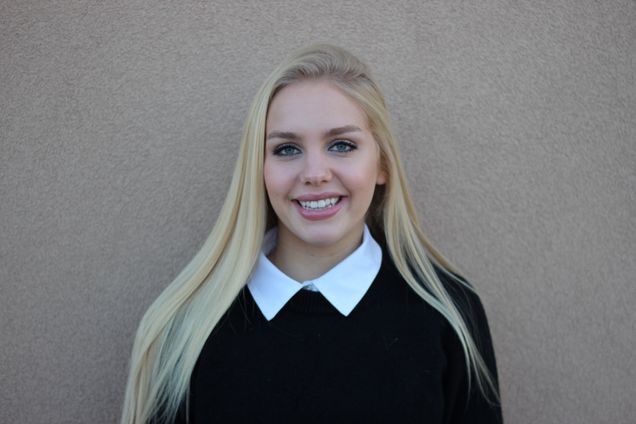 Years in Training Grant: 2024-current
Years in Training Grant: 2024-current
Home State: Ohio
Undergraduate Institution: Boston University
Degree: B.S. in Health Science
Graduate Institution: Boston University
Degree: M.S. in Biostatistics
Jung Lee
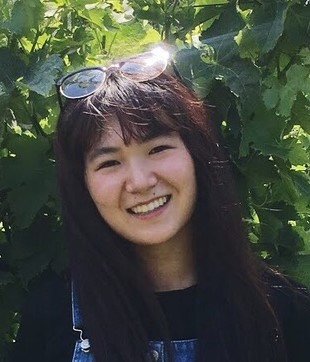 Years in Training Grant: 2024-current
Years in Training Grant: 2024-current
Home State: Massachusetts
Undergraduate Institution: Boston University
Degree: B.S. in Health Science
Graduate Institution: Boston University
Degree: M.S. in Applied Biostatistics
Hannah Sullivan
Home State: Connecticut
Undergraduate Institution: Emmanuel College
Degree: B.S. in Biostatistics
Lucas Takayoshi
 Years in Training Grant: 2024-current
Years in Training Grant: 2024-current
Home State: Washington
Undergraduate Institution: Western Washington University
Degree: B.S. in Statistics
Francesca Zumpano
 Years in Training Grant: 2024-current
Years in Training Grant: 2024-current
Home State: New Jersey
Undergraduate Institution: College of New Jersey
Degree: B.S. in Mathematics & Statistics
Graduate Institution: Rutgers University
Degree: M.S. in Biostatistics
Jordan Ahn
 Years in Training Grant: 2023-current
Years in Training Grant: 2023-current
Home State: New Jersey
Undergraduate Institution: Boston University
Degree: Biomedical Engineering
Emma Risner
 Years in Training Grant: 2023-current
Years in Training Grant: 2023-current
Home State: Florida
Undergraduate Institution: University of Florida
Degree: B.A. in Mathematics
Lia Rotti
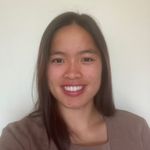 Years in Training Grant: 2023-current
Years in Training Grant: 2023-current
Home State: Vermont
Undergraduate Institution: Tufts University
Degree: B.S. in Applied Mathematics
Michael Figueroa
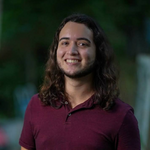 Years in Training Grant: 2020-2021
Years in Training Grant: 2020-2021
Home State: Puerto Rico
Undergraduate Institution: University of Puerto Rico—Rio Piedras campus
Degree: Mathematics
John Cannon
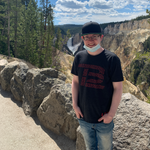 Years in Training Grant: 2021-2023
Years in Training Grant: 2021-2023
Home State: Utah
Undergraduate Institution: Brigham Young University
Degree: B.S. in Economics
Genevieve Dupuis
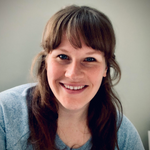 Years in Training Grant: 2021-2023
Years in Training Grant: 2021-2023
Home State: Montana
Undergraduate Institution: University of Notre Dame
Degree: Mathematics
Brooke McGinley
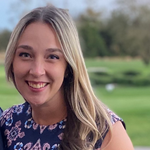 Years in Training Grant: 2021-2023
Years in Training Grant: 2021-2023
Home State: New Jersey
Undergraduate Institution: Rowan University
Degree: B.S. in Mathematics, B.A. in Computing & Informatics; Minors: Statistics & Operations Research, Data Science
Julia Gallini
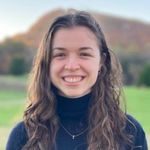 Years in Training Grant: 2022-2024
Years in Training Grant: 2022-2024
Home State: Virginia
Undergraduate Institution: UNC Chapel Hill
Degree: Biostatistics and Mathematics
Lindsay Salvati
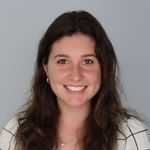 Years in Training Grant: 2022-2024
Years in Training Grant: 2022-2024
Home State: Connecticut
Undergraduate Institution: Connecticut College
Degree: B.A. in Mathematics with a concentration in statistics, minored in psychology and linguistics
Our Alumni
Taylor Mahoney

My name is Taylor Mahoney and I am currently a PhD candidate in the department of biostatistics at BU. I am originally from Charlestown, MA and I received my BS in Biostatistics from Simmons University in Boston, MA as a first-generation college student.
铜
否
Th
Zachary Baucom
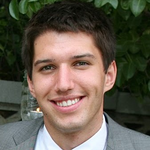 我
我
Carlee Moser
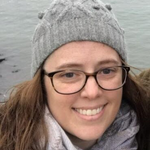
我
The training grant was a wonderful opportunity to get exposure to different areas of biostatistics, including statistical genetics and clinical trials. Through my rotations on the training grant, I realized I had a strong interest in observational studies, which led me to my research assistantship with the Framingham Heart Study and my thesis work on infectious disease outbreaks. Ironically, I did not think clinical trials were for me, but here I am! It was great to have some exposure to RCTs prior to my role at CBAR.
My best advice would be to have an open mind. I had a lot of preconceived notions about classes or areas of biostatistics I would like or not like, and I often surprised myself. Getting a PhD can feel like a long journey, but just take it step by step and before you know it you’ll be writing a brief summary for the BU biostats website, being 8 years out from your PhD! I guess my last piece of advice is pick a thesis topic that you find really interesting, that piques your curiosity. I found that even on the more challenging days, I truly loved what I was working on so it helped keep me going.
Jeremiah Perez
 I am currently a Senior Biostatistician II at Pharmaceutical Product Development (PPD). It is a global contract clinical research organization (CRO) based in Wilmington, North Carolina, but I work remotely from my home in Orlando, FL. As part of my role at PPD, I serve as the lead statistician and senior statistical reviewer for several clinical research studies across a wide range of therapeutic areas, including, but not limited to, oncology, infectious diseases, and ophthalmology.
I am currently a Senior Biostatistician II at Pharmaceutical Product Development (PPD). It is a global contract clinical research organization (CRO) based in Wilmington, North Carolina, but I work remotely from my home in Orlando, FL. As part of my role at PPD, I serve as the lead statistician and senior statistical reviewer for several clinical research studies across a wide range of therapeutic areas, including, but not limited to, oncology, infectious diseases, and ophthalmology.
The program’s research rotations allowed me to explore and gain hands-on experience in different research areas where biostatistics is applied. The work I did for some of my rotations even led to my very first publications. My experience with the training grant program also helped me in choosing a research area for my Ph.D. dissertation work. The program provided the opportunity to find interdisciplinary mentors, which was very helpful to me as a first-generation college student and someone who wanted to learn more about the different opportunities available in Biostatistics.
My advice to an incoming training grant/PhD student would be to be open-minded and take advantage of this opportunity by exploring and appreciating the interdisciplinary nature of Biostatistics. Take the time to attend social events and/or be part of student groups (e.g., Biostatistics Student Association, Student Chapter of the ASA). Form study groups and get to know your classmates because the PhD experience is like a rollercoaster ride (with highs and lows), but it is more fun when you can experience the ride together.
Apply
Individuals must be accepted to the PhD program in Biostatistics, and be a US citizen or permanent resident in order to be eligible for the training grant.
To be considered for the training grant, individuals must apply for the PhD program in Biostatistics. Students can find more information about applying to the PhD program here.
Seminars/Events
Join us for a virtual information session.
Contact Us
For more information about the program, please email biostat@bu.edu.
 Years in Training Grant: 2024-current
Years in Training Grant: 2024-current Years in Training Grant: 2024-current
Years in Training Grant: 2024-current Years in Training Grant: 2024-current
Years in Training Grant: 2024-current Years in Training Grant: 2024-current
Years in Training Grant: 2024-current


 Years in Training Grant: 2020-2021
Years in Training Grant: 2020-2021 Years in Training Grant: 2021-2023
Years in Training Grant: 2021-2023 Years in Training Grant: 2021-2023
Years in Training Grant: 2021-2023 Years in Training Grant: 2021-2023
Years in Training Grant: 2021-2023
 Years in Training Grant: 2022-2024
Years in Training Grant: 2022-2024
 我
我
 I am currently a Senior Biostatistician II at Pharmaceutical Product Development (PPD). It is a global contract clinical research organization (CRO) based in Wilmington, North Carolina, but I work remotely from my home in Orlando, FL. As part of my role at PPD, I serve as the lead statistician and senior statistical reviewer for several clinical research studies across a wide range of therapeutic areas, including, but not limited to, oncology, infectious diseases, and ophthalmology.
I am currently a Senior Biostatistician II at Pharmaceutical Product Development (PPD). It is a global contract clinical research organization (CRO) based in Wilmington, North Carolina, but I work remotely from my home in Orlando, FL. As part of my role at PPD, I serve as the lead statistician and senior statistical reviewer for several clinical research studies across a wide range of therapeutic areas, including, but not limited to, oncology, infectious diseases, and ophthalmology.